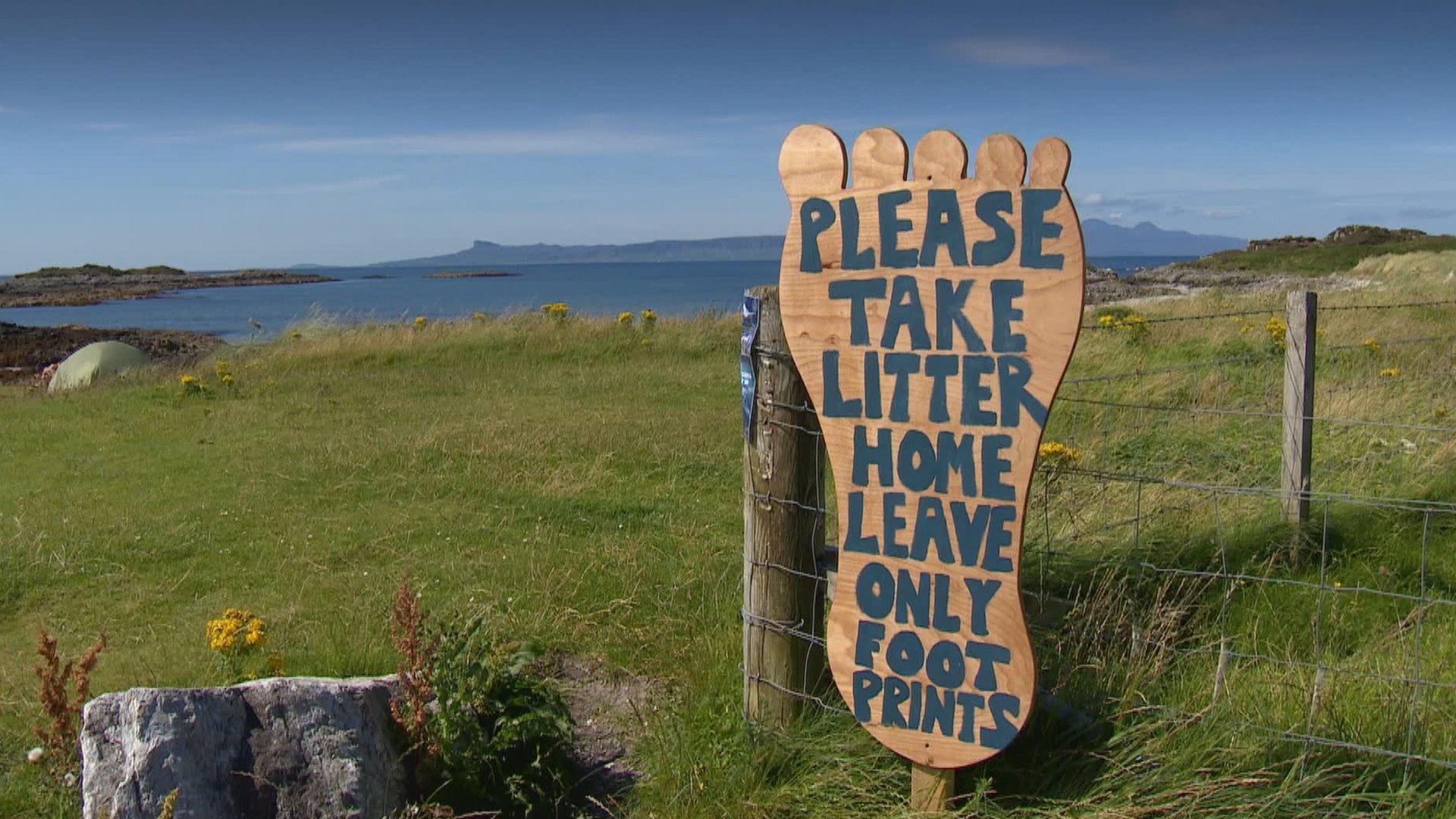How a Highland village is changing to meet staycation demand
- Published
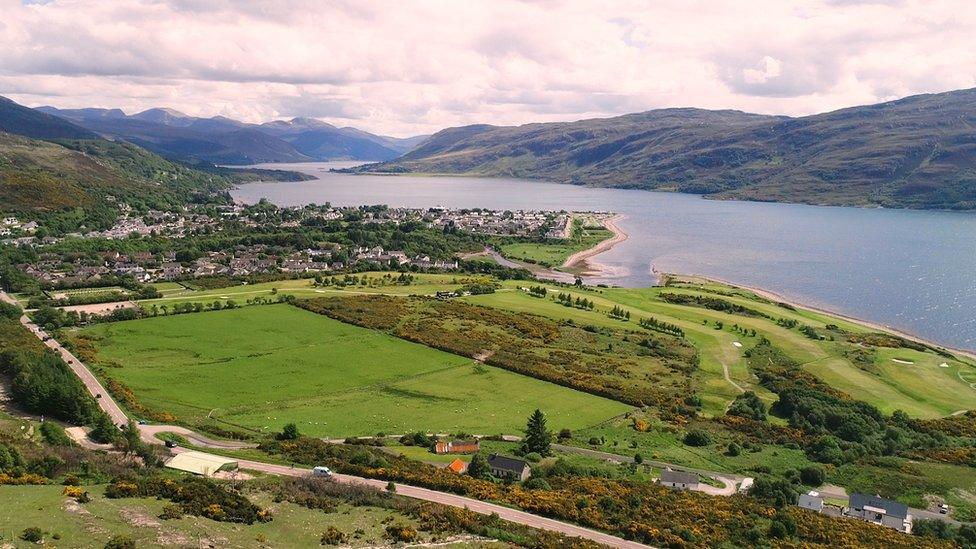
Ullapool and the surrounding area in Wester Ross have grown in popularity in recent years
Tourism businesses in and around Ullapool are expecting a busy summer, with the area a popular destination for people who choose to holiday closer to home amid the pandemic.
Will Copestake, an outdoor instructor and former Scottish and UK Adventurer of the Year, runs sea kayaking classes and trips off Achiltibuie, about 40 minutes by car from Ullapool.
He says the popularity of the whole Wester Ross area for staycations is plain to see - with demand for the activities he offers increasing.
"Bookings this year have definitely been elevated over what we would normally expect," he says, with "sometimes well in excess of" 50 emails a day from potential customers.
Before Covid, many of Will's clients were people who had kayaked before and wanted to explore the Summer Isles just off the coast.
He says: "The difference this year and last year is that it is new people, who are wanting to go camping and kayaking for the first time."
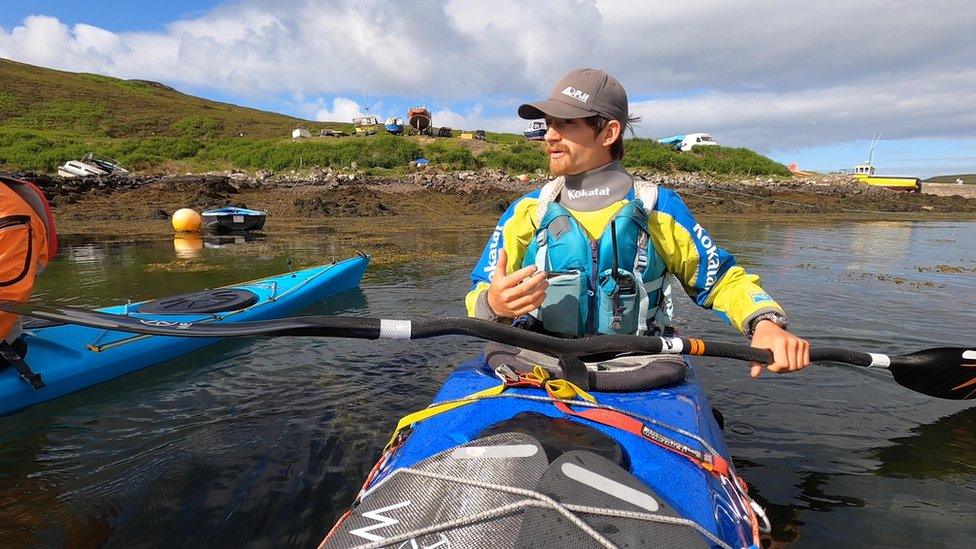
Will Copestake says he is seeing clients this year who want to try new outdoor pursuits
But some businesses are facing challenges as they prepare for the influx of staycation visitors.
Robert Hicks, of the Arch Inn in Ullapool, says he does not have enough people to run the business normally, and has had to make adjustments to his offering.
"We are open seven days a week for accommodation and drinks, but we have had to stop serving food two days a week for the welfare of staff," he says.
Robert believes staff shortages in the hospitality industry are not just a Highland problem, but a UK-wide one with workers leaving the trade to pursue other careers.
He says: "Furlough has been really wonderful, but I think it was maybe a mistake allowing people to pick up second jobs. Some people have kept that second job and given up the job they were furloughed from."
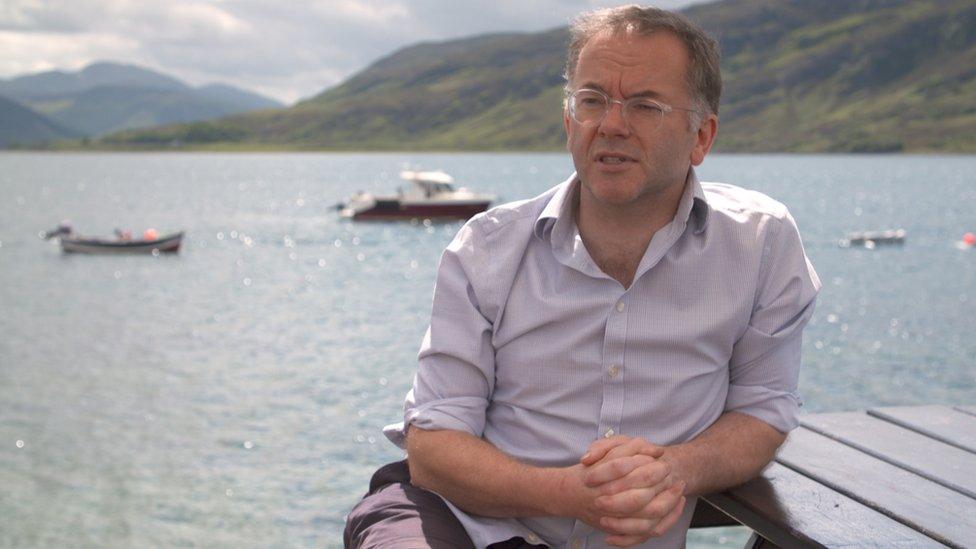
Robert Hicks says a staff shortage has had an impact on his business
Di Rusling, who runs about 30 self-catering properties around the village, is also experiencing staff shortages.
She says: "We would usually try and do some lets for three or four nights, but this year can only do seven night lets or longer due to the changeovers.
"There just isn't the staff to be able to manage that part of the business."
Last year, post-lockdown, some tourism hotspots became crowded and communities spoke out about a lack of facilities to cope with the demand.
Will describes the popularity of Wester Ross as a "mixed blessing".
He says: "There was definitely elevated pressure [last year], but on the other hand I think the community has been fairly shut down for over a year now and it's really good to have a bit of business back and a little bit more activity."
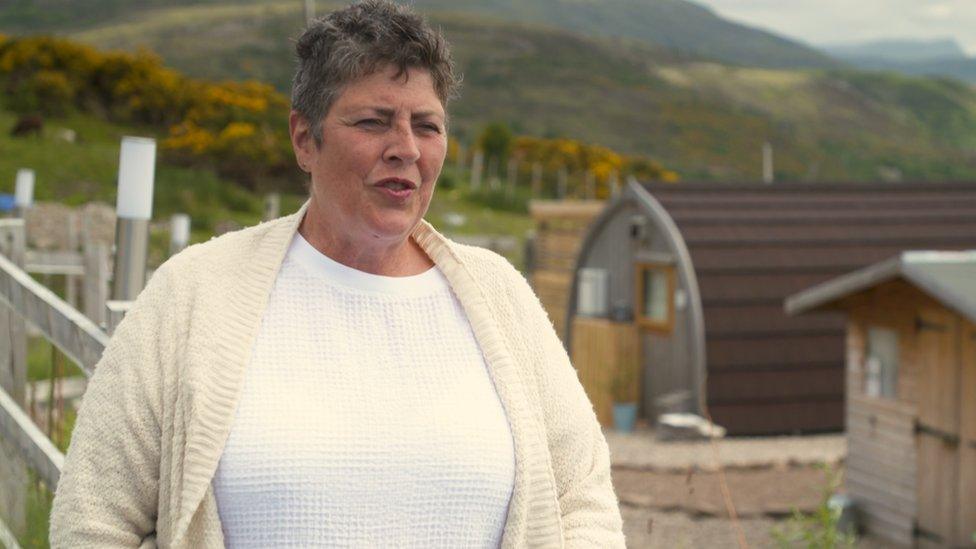
Di Rusling says she does not have enough staff to handle shorter stays at her self-catering properties
Di says there was "a lot of negativity" last year around tourism, though agrees some concerns about excessive numbers of visitors remain.
But she says: "The village really needs to have visitors to survive."
Robert is also keen to find the positives in the area's popularity.
He says it is "shining a light" on a part of the country which had been forgotten until recently.
"I think very much the positives outweigh the negatives," he adds.
Related topics
- Published16 April 2021
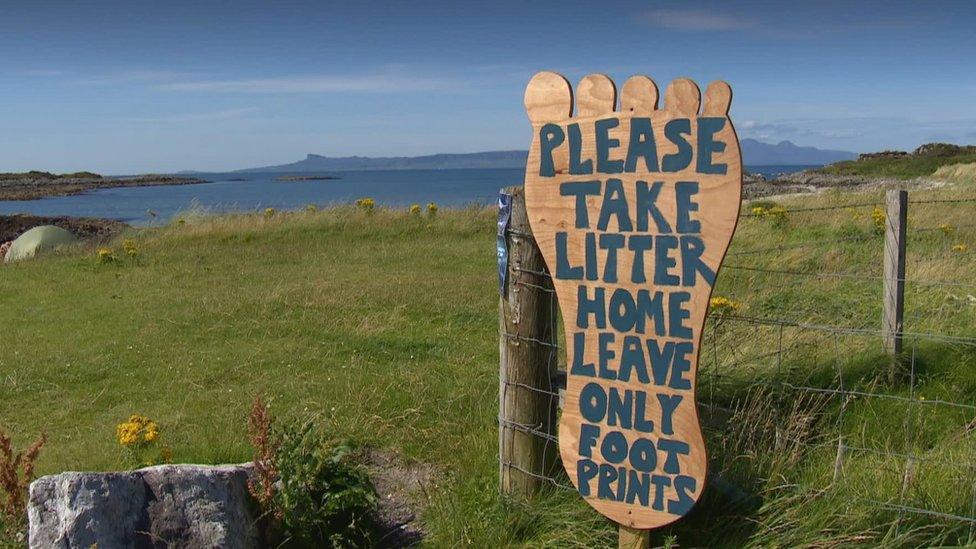
- Published16 August 2020
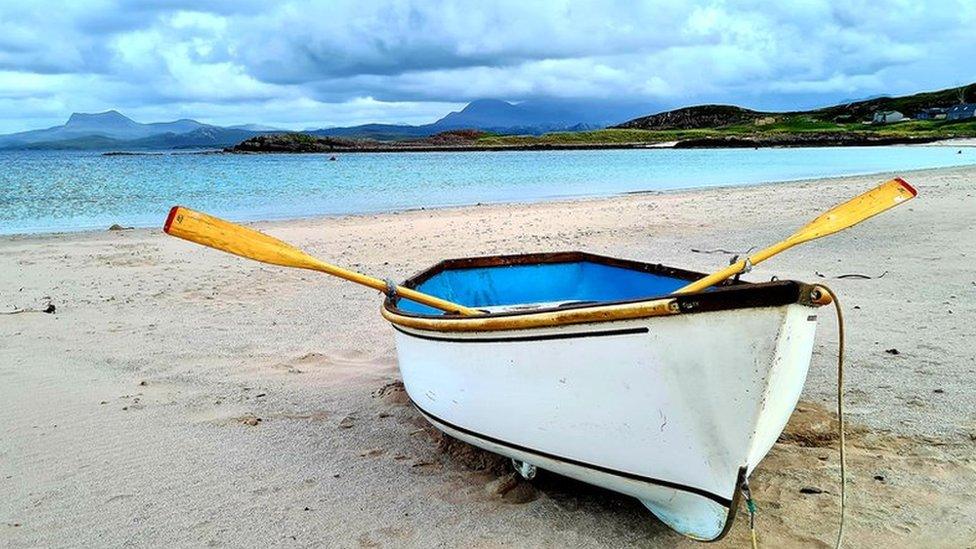
- Published8 August 2020
